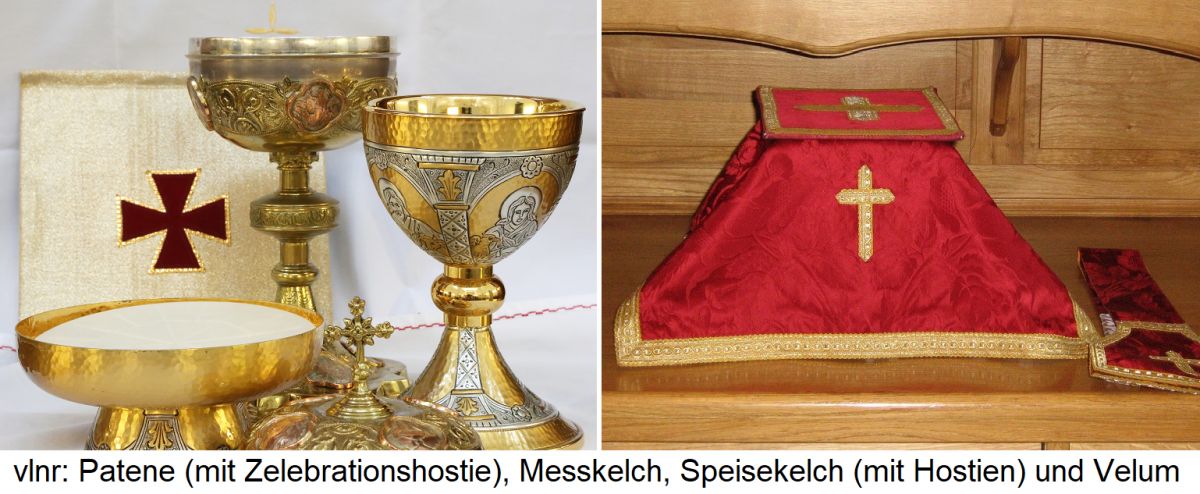The (substantial) transformation of bread and wine into Christ's flesh and blood, according to Christian belief, at Mass. See under Eucharist.
Eucharist
Within the Christian Church there have been the following disputes for centuries: Must wine be provided for all the faithful participating in the Mass or only for the priest? Must it necessarily be white wine or red wine, or is that irrelevant? May the wine be mixed with water? Are grape juice, sparkling wine or other drinks permitted instead of wine? And how does one deal with these questions, which are fiercely debated by many highly educated clergy, or with the problematic consumption of alcohol by children, the sick and alcoholics? And last but not least: Does wine (mass wine) have to be produced in a special way according to certain "Christian" rules?

Origin
This sounds strange at first glance, because actually the answer should be clear and unambiguous. The origin lies, after all, in the famous Last Supper, where Jesus enjoyed bread and wine with his disciples on the eve of his death on the cross and commanded them to continue the custom in his memory. The church usually refers to the unconditional interpretation or observance of Jesus' words, so why these questions here at all? The problem escalated from the beginning of the Reformation at the beginning of the 16th century, because Martin Luther and other reformers such as John Calvin and Thomas Müntzer vehemently demanded unconditional observance of the words of Jesus.
In the sacrificial rituals described in the Old Testament in the Bible, wine is spilled by the Jews as a symbol of prosperity, atonement for guilt and as a sign of worship to God, as well as animal blood as a symbol of life, and thus returned to God. In the Christian Church, wine and bread have a mystical significance as the sacrament of the Lord's Supper instituted by Jesus (Greek Eucharist = thanksgiving). The symbolic forerunner is King Melchisedech, mentioned in the Book of Genesis in the Abrahamic narrative, after whom one of the numerous oversized bottles of champagne is named.
Holy Mass
At Holy Mass, according to the Christian faith, bread and wine are actually (i.e. not only symbolically) changed into Christ's body and blood (consecration = the substance; not the appearance) and forms the climax of this celebration. At the reception of the Lord's Supper (communion = union) in the early days of the Christian community, bread and wine were usually given to all present. From the Middle Ages onwards, however, it was decided in the Roman Catholic Church for purely...
Voices of our members

Serious sources on the internet are rare - and Wine lexicon from wein.plus is one such source. When researching for my articles, I regularly consult the wein.plus encyclopaedia. There I get reliable and detailed information.
Thomas Götz
Weinberater, Weinblogger und Journalist; Schwendi